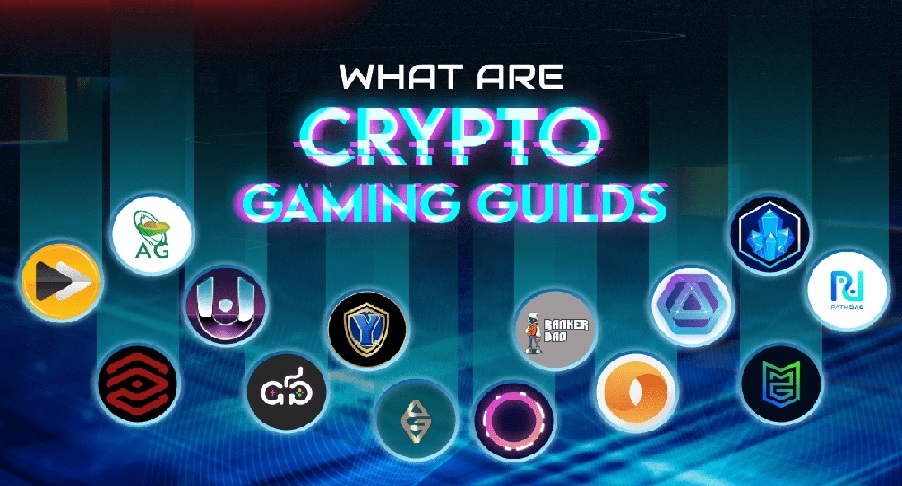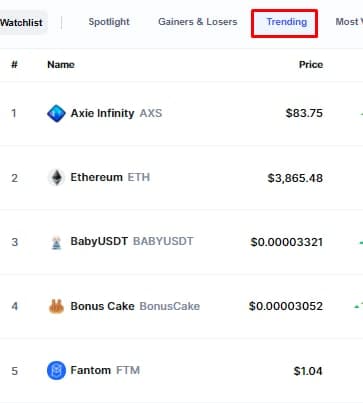In recent years, the realm of interactive entertainment has witnessed a remarkable transformation, driven by technological advances and innovative concepts. This shift has allowed enthusiasts to engage with virtual environments in ways previously deemed impossible. As new paradigms emerge, the landscape of leisure activities continues to evolve, offering players unique opportunities to experience challenges, competition, and collaboration.
At the heart of this evolution lies a progressive integration of digital currencies, allowing for the seamless exchange of value within virtual worlds. Players are no longer just participants; they are integral to the economy of these immersive experiences. This decentralization not only enhances user engagement but also creates a dynamic marketplace where creativity and strategic thinking flourish.
As traditional models of entertainment intertwine with groundbreaking technology, the opportunities for redefining social interactions and community dynamics expand dramatically. What was once solely a pastime has now become a multifaceted ecosystem that influences lifestyle choices, economic transactions, and even professional aspirations. This intriguing interplay suggests that the digital playground of tomorrow will be shaped by the innovations of today.
Overview of Crypto Gaming Trends
The landscape of interactive entertainment is rapidly evolving, influenced by the integration of decentralized technologies and digital assets. This transformation is reshaping how players engage with their favorite experiences, creating new dynamics in ownership, monetization, and community involvement. The convergence of these elements is giving rise to innovative methodologies, challenging conventional paradigms of traditional entertainment formats.
Emerging Technologies and Their Roles
Recent advancements in blockchain technology have paved the way for unique economic models within the interactive space. One of the significant trends is the incorporation of non-fungible tokens (NFTs), which allow participants to own, trade, and sell in-game assets. This ownership model fosters a sense of connection between users and their digital possessions, contrasting sharply with the standard practice of renting content seen in longstanding platforms. Additionally, decentralized finance (DeFi) elements are being integrated, enabling users to earn rewards through participation in various systems.
Community-Centric Approaches
Another notable trend is the shift toward community governance and involvement. Players are increasingly being given a voice in decisions about the direction of projects they are part of. This democratization of power not only enhances user engagement but also cultivates a collective responsibility for the ecosystem’s growth. Play-to-earn models are central to this approach, allowing participants to benefit financially based on their efforts and contributions, creating a more equitable distribution of rewards compared to traditional revenue-sharing models.
How Blockchain Technology Enhances Gameplay
Innovative digital technologies are revolutionizing interactive entertainment experiences by introducing novel mechanisms that redefine engagement and immersion for players. These advancements facilitate groundbreaking features that enhance user interaction, ownership, and trust within virtual environments.
Decentralization plays a pivotal role in this evolution, allowing players to participate in a system where no single entity completely controls the game. This fosters a community-driven atmosphere where decisions can be shaped collectively, empowering individuals and enriching overall experiences.
Moreover, transparent ownership of in-game assets ensures that players genuinely possess their virtual items, eliminating the risk of loss or arbitrary restrictions. Utilizing unique tokens, participants can buy, sell, or trade their possessions freely, mirroring real-world economies while enhancing the sense of true ownership.
Interoperability across different platforms offers additional advantages, enabling users to utilize their assets in various games and environments without losing value. This fluidity not only augments player satisfaction but also contributes to a more vibrant and interconnected ecosystem.
Furthermore, implementing smart contracts enhances gameplay mechanics by automating transactions and ensuring fairness. Players can be assured of compliance with game rules without the need for intermediaries, promoting transparency and trust among participants.
Ultimately, these transformative attributes create a richer and more engaging virtual realm, paving the way for a thrilling interactive landscape where players can explore new possibilities and redefine their experiences.
Financial Opportunities in Play-to-Earn Models
Emerging interactive mediums offer players unique avenues for generating income while engaging in entertaining experiences. This paradigm shift allows participants to leverage their time and skills not just for leisure but also for tangible financial gain, transforming the notion of recreational activities into potentially lucrative ventures.
One of the most appealing aspects of these innovative structures is their accessibility. Individuals from various backgrounds can participate in this ecosystem, often without the need for substantial initial investments. As players immerse themselves in these digital worlds, they can earn rewards that hold real-world value, thereby fostering a diverse marketplace where skills and creativity are paramount.
Furthermore, as these models gain traction, opportunities for community building and collaboration arise. Players can form alliances, trade assets, and collectively increase their earning potential. This communal approach not only enhances the gaming experience but also fosters a sense of belonging and purpose within these digital spaces.
Moreover, the integration of blockchain technologies ensures transparency and security, enabling players to track their earnings and verify ownership of digital assets. This level of trust encourages more participants to explore these opportunities, potentially leading to a wider adoption of these interactive experiences.
Ultimately, the potential for financial rewards within these interactive models signifies a paradigm shift in how individuals view their involvement in digital entertainment. Rather than being mere consumers, players are becoming entrepreneurs, opening up new possibilities for wealth generation in the evolving landscape of virtual experiences.
Community Engagement in Digital Game Economies
In the realm of interactive entertainment, fostering connections among participants plays a crucial role in shaping the overall experience. As individuals immerse themselves in virtual worlds, their interactions and collaboration can significantly influence the development and sustainability of these digital ecosystems. This collaborative spirit, driven by shared interests and goals, not only enriches the gameplay but also helps in establishing robust economies that benefit all members involved.
| Aspect | Description |
|---|---|
| Player Contributions | Active participants often generate content, contributing to a richer ecosystem through creations like skins, maps, and mods. |
| Collaborative Goals | Communities frequently rally around common objectives, enhancing teamwork and cooperation among members. |
| Feedback Mechanisms | Engaging with fellow players provides vital insights for developers, helping them refine and improve the user experience. |
| Economic Interactions | Trade and barter among players facilitate a dynamic marketplace, allowing for the exchange of in-game assets and currencies. |
| Community Events | Concerted activities, such as tournaments or challenges, foster a sense of belonging and camaraderie among participants. |
In these digital realms, the collective enthusiasm of participants can lead to innovative practices and economic growth. By nurturing connections, participants not only enhance their gaming experiences but also contribute to the resilience and prosperity of these interactive communities.
The Role of NFTs in Interactive Entertainment
In recent years, a revolutionary concept has emerged that is transforming the landscape of digital experiences. This innovation introduces unique assets that players can own, trade, and interact with, creating a new dimension of participation and personalization. It empowers users, granting them true ownership of virtual items in a way that was previously unattainable.
These unique digital tokens are paving the way for a more immersive experience, where virtual identities and possessions become more meaningful. This phenomenon not only enhances engagement but also opens up new pathways for economic opportunities within the realm of interactive activities.
- Ownership: Players can truly possess their in-game items, leading to a sense of pride and attachment.
- Scarcity: Limited edition items can increase in value over time, making them sought after by collectors.
- Interoperability: Assets can potentially be used across multiple platforms, providing seamless experiences for users.
- Curation: Players can create and sell their own content, giving rise to new forms of creativity and community.
This innovative model is redefining the ecosystem, fostering a vibrant economy where players actively participate in their digital worlds. The integration of these unique tokens is not merely a trend, but a fundamental change that has the potential to shape the next generation of interactive media.
Challenges Facing the Crypto Gaming Industry
The landscape of digital entertainment has recently shifted dramatically, introducing a plethora of innovations and advancements. However, alongside these exciting developments come numerous obstacles that creators and players must navigate. These hurdles can influence both the growth of this sector and the experiences of its users, highlighting the complexities involved in merging technology with interactive amusement.
Regulatory Uncertainties
One significant issue revolves around the lack of clear regulations governing virtual assets and online platforms. Many jurisdictions struggle to establish firm guidelines, leaving developers and users in a state of confusion. Legislative ambiguities can inhibit investment and innovation, while also jeopardizing the safety of participants. Stakeholders often find themselves operating in a precarious environment, where compliance with varying rules is challenging.
User Experience and Adoption
Another challenge lies in the sophistication required to engage with these digital ecosystems. Many potential players face steep learning curves, which can be off-putting for newcomers. The integration of complex technologies may hinder mass adoption, as individuals may prefer simpler experiences. Ensuring that platforms are user-friendly while incorporating advanced features is essential for attracting a broader audience.
Q&A: What is crypto gaming
What is crypto gaming, and how does it differ from traditional gaming?
Crypto gaming combines gaming with blockchain technology, allowing players to earn, trade, and own in-game assets as cryptocurrencies or non-fungible tokens (NFTs). Unlike traditional gaming, where players do not have true ownership of their digital assets, crypto gaming empowers players by giving them the ability to buy, sell, and trade their in-game items on decentralized platforms. This shift in ownership can change the gaming experience, providing players with real economic incentives to engage with the game.
How does blockchain technology enhance the gaming experience?
Blockchain technology enhances gaming by ensuring transparency, security, and decentralization. Transactions recorded on the blockchain are immutable and transparent, which means players can trust that the in-game economy is fair and that their assets are secure. Additionally, blockchain enables true ownership of digital items through NFTs, allowing players to have direct control over their assets. This creates opportunities for players to make money from their gameplay, as well as to participate in decentralized game economies that can operate independently from traditional gaming companies.
What impact could crypto gaming have on the traditional gaming industry?
The rise of crypto gaming could significantly reshape the traditional gaming industry by introducing new business models and player engagement strategies. Traditional game developers might start integrating blockchain elements into their games to stay competitive, potentially leading to the emergence of play-to-earn models, where players earn real-world value from their gaming activities. Furthermore, it may lead to a more player-centric economy, where community governance and player feedback drive game development. This shift could revolutionize how games are monetized and how players interact with them.
Are there risks associated with crypto gaming that players should be aware of?
Yes, there are several risks associated with crypto gaming. One major concern is the volatility of cryptocurrencies; the value of in-game assets can fluctuate dramatically, leading to potential losses for players. Additionally, the gaming market can be subject to scams and fraudulent projects, making it essential for players to do thorough research before engaging with any crypto game. Finally, players should also consider the potential for regulatory changes that could impact crypto gaming and its associated economies in the future.
What does the future hold for crypto gaming and its players?
The future of crypto gaming appears promising, with expected advancements in blockchain technology and an increasing adoption of decentralized finance (DeFi) within gaming ecosystems. As more players become aware of the benefits of true asset ownership and the ability to earn from gameplay, the demand for crypto games is likely to grow. Game developers will continue experimenting with innovative gameplay mechanics that leverage blockchain, leading to new genres and game experiences. Ultimately, crypto gaming could usher in a new era of play where players are both participants and stakeholders in the gaming economy, creating a more inclusive and rewarding environment for everyone involved.
How does blockchain gaming change the traditional video game experience for gamers?
Blockchain gaming changes the traditional video game experience by allowing gamers to truly own in-game assets, trade them with other players, and earn cryptocurrency through play-to-earn games. This shift from centralized control to decentralized ownership gives players more power and financial opportunities within the gaming platform.
What role does the decentralized nature of blockchain play in blockchain gaming?
The decentralized nature of blockchain ensures that assets within a blockchain game are owned and controlled by the players rather than a central authority. This allows for greater transparency, security, and trust in the gaming platform, making blockchain-based games more appealing to gamers looking for fair play and ownership.
How does Axie Infinity utilize blockchain technology in its gaming platform?
Axie Infinity utilizes blockchain technology by allowing players to own, trade, and breed digital creatures called Axies, which are represented as NFTs on the Ethereum blockchain. Players can earn gaming tokens by participating in battles and other in-game activities, making it a leading example of a play-to-earn game.
Why is the use of blockchain in a blockchain-based game significant for the gaming industry?
The use of blockchain in a blockchain-based game is significant because it introduces the concept of true digital ownership and decentralized control over assets. This technology disrupts traditional video game models, where assets are controlled by game developers, and gives players the ability to trade, sell, or use assets across multiple platforms.
How does the Ethereum blockchain support blockchain gaming platforms?
The Ethereum blockchain supports blockchain gaming platforms by providing the infrastructure for creating and managing smart contracts, which are essential for decentralized applications (dApps). These contracts enable features like tokenized assets, decentralized marketplaces, and in-game economies that are crucial for the operation of blockchain games.
What makes play-to-earn games like Axie Infinity attractive to cryptocurrency enthusiasts?
Play-to-earn games like Axie Infinity are attractive to cryptocurrency enthusiasts because they offer a way to earn digital currency by simply playing the game. The integration of NFTs and gaming tokens within the blockchain gaming platform allows players to monetize their gaming skills and investments.
How do NFT games differ from traditional video games in terms of asset ownership?
NFT games differ from traditional video games in that they allow players to own unique digital assets, such as characters or items, as non-fungible tokens (NFTs). Unlike traditional games, where assets are controlled by the game developer, NFT games let players trade or sell their assets on various marketplaces using blockchain technology.
What are the benefits of using blockchain technology in the creation of gaming tokens?
Using blockchain technology in the creation of gaming tokens provides benefits such as transparency, security, and interoperability. These tokens can be used across multiple games and platforms, allowing players to transfer value and assets seamlessly, enhancing the overall gaming experience.
How does the concept of a web3 game differ from traditional online games?
A web3 game differs from traditional online games by leveraging blockchain technology to decentralize control and enable features like tokenized assets, decentralized governance, and play-to-earn mechanics. This shift empowers players to have more influence and financial incentives within the game.
What are the advantages of playing NFT games for gamers?
The advantages of playing NFT games for gamers include the ability to own, trade, and sell unique in-game items, characters, or assets as NFTs. This ownership allows players to potentially earn real-world value from their gaming activities, making NFT gaming an attractive option for both gamers and investors.
How does crypto gaming work within the framework of blockchain technology?
Crypto gaming works within the framework of blockchain technology by using cryptocurrencies and smart contracts to facilitate transactions, in-game economies, and ownership of digital assets. The decentralized nature of blockchain ensures that these transactions are secure, transparent, and free from centralized control.
What makes a top gaming platform in the blockchain gaming industry?
A top gaming platform in the blockchain gaming industry is characterized by its use of blockchain technology to offer decentralized ownership, robust security, and a thriving in-game economy. Additionally, successful platforms often support multiple games, allow for the trading of NFTs, and integrate with popular cryptocurrencies.
How do blockchain gaming platforms use the decentralized nature of blockchain to enhance the gaming experience?
Blockchain gaming platforms use the decentralized nature of blockchain to enhance the gaming experience by ensuring that players have full ownership of their in-game assets, transparent transactions, and the ability to participate in decentralized governance. This creates a fair and trustless environment where players can engage more deeply with the game.
Why is using blockchain in the development of play-to-earn games important?
Using blockchain in the development of play-to-earn games is important because it enables players to earn real cryptocurrency or NFTs as rewards for their in-game achievements. This model incentivizes players to engage more with the game, while also providing them with tangible, tradeable assets.
How does playing a blockchain-based game like Axie Infinity provide financial opportunities for gamers?
Playing a blockchain-based game like Axie Infinity provides financial opportunities for gamers by allowing them to earn and trade in-game tokens, which can be exchanged for cryptocurrency or fiat currency. This play-to-earn model transforms gaming from a hobby into a potential income-generating activity.







